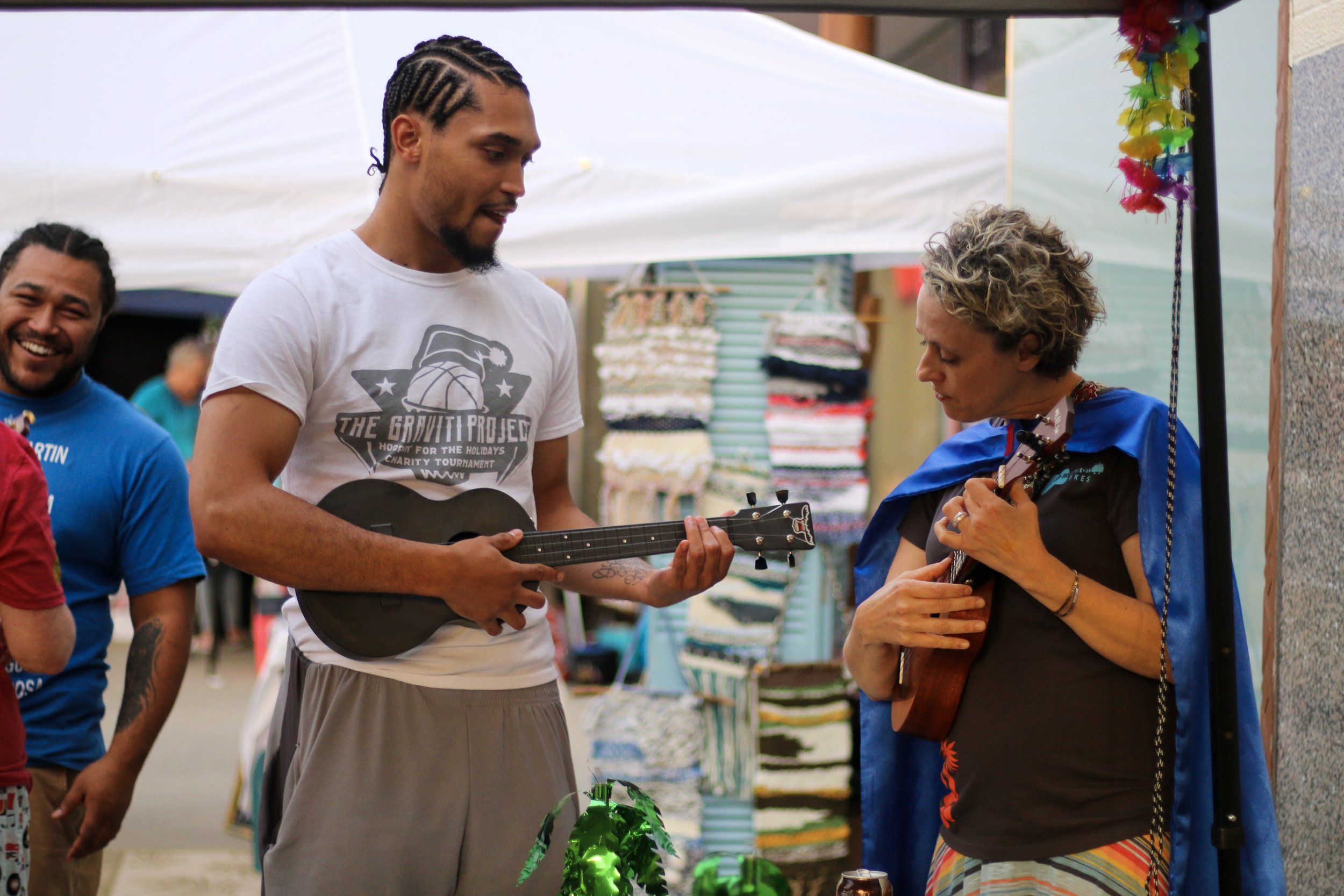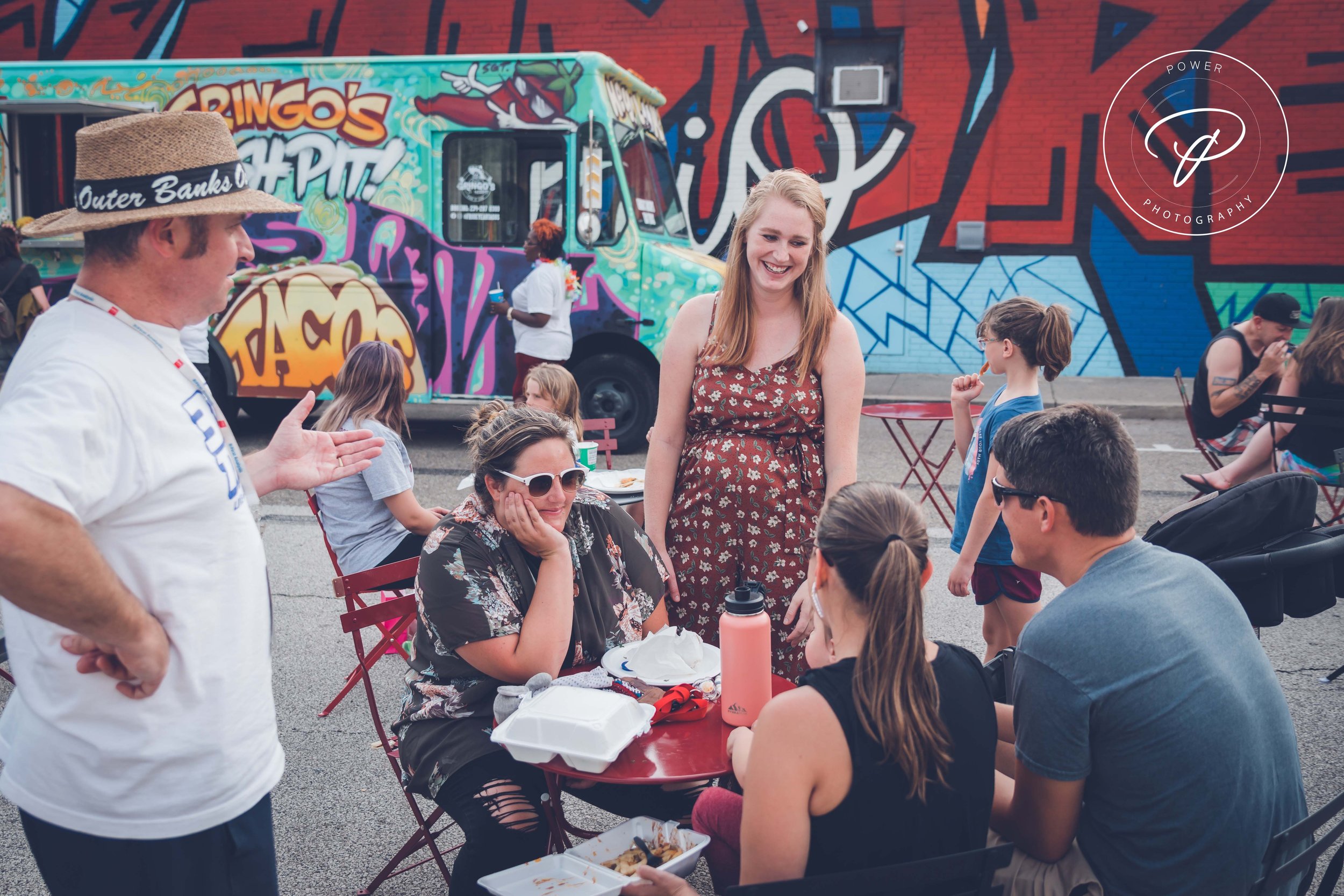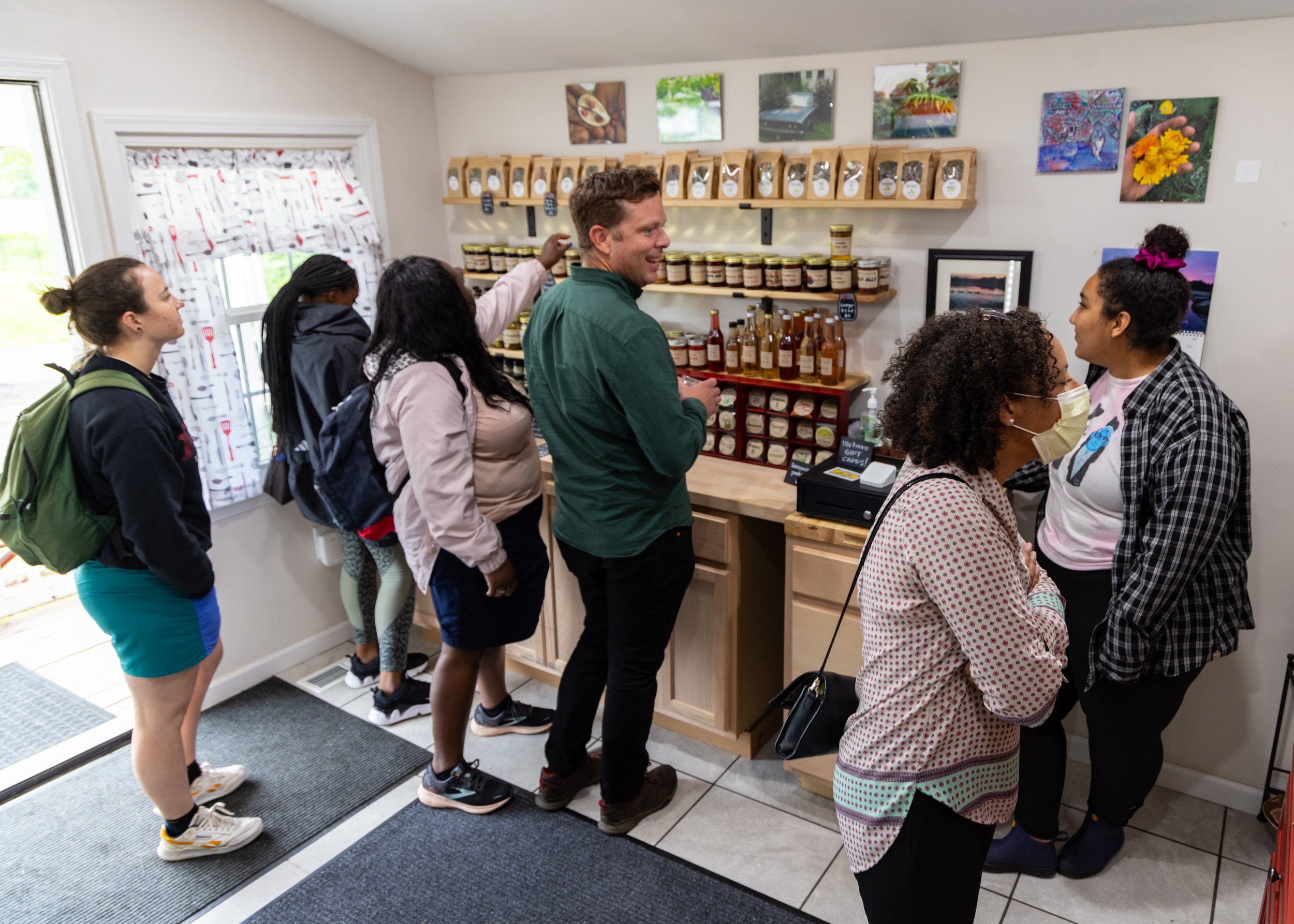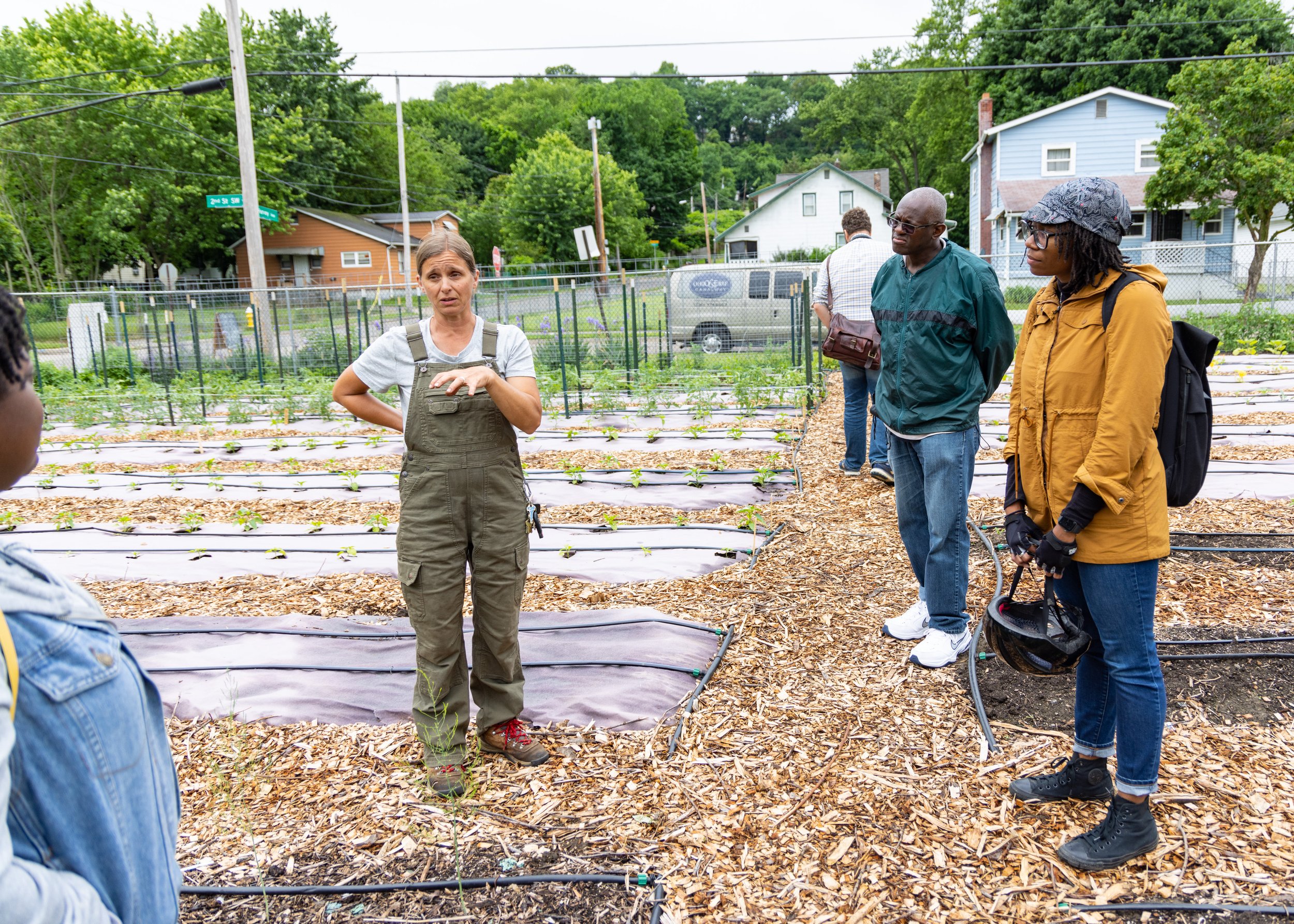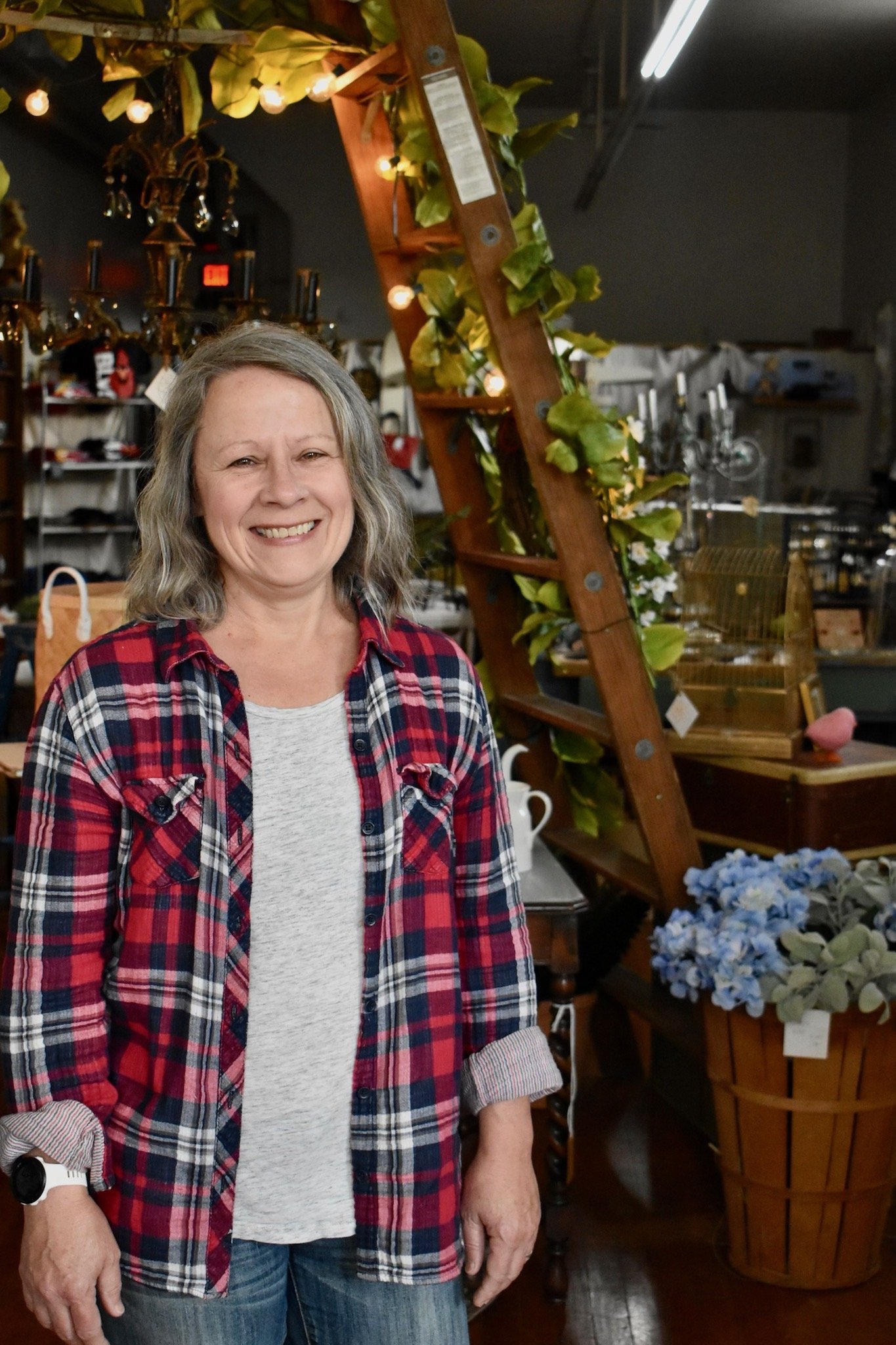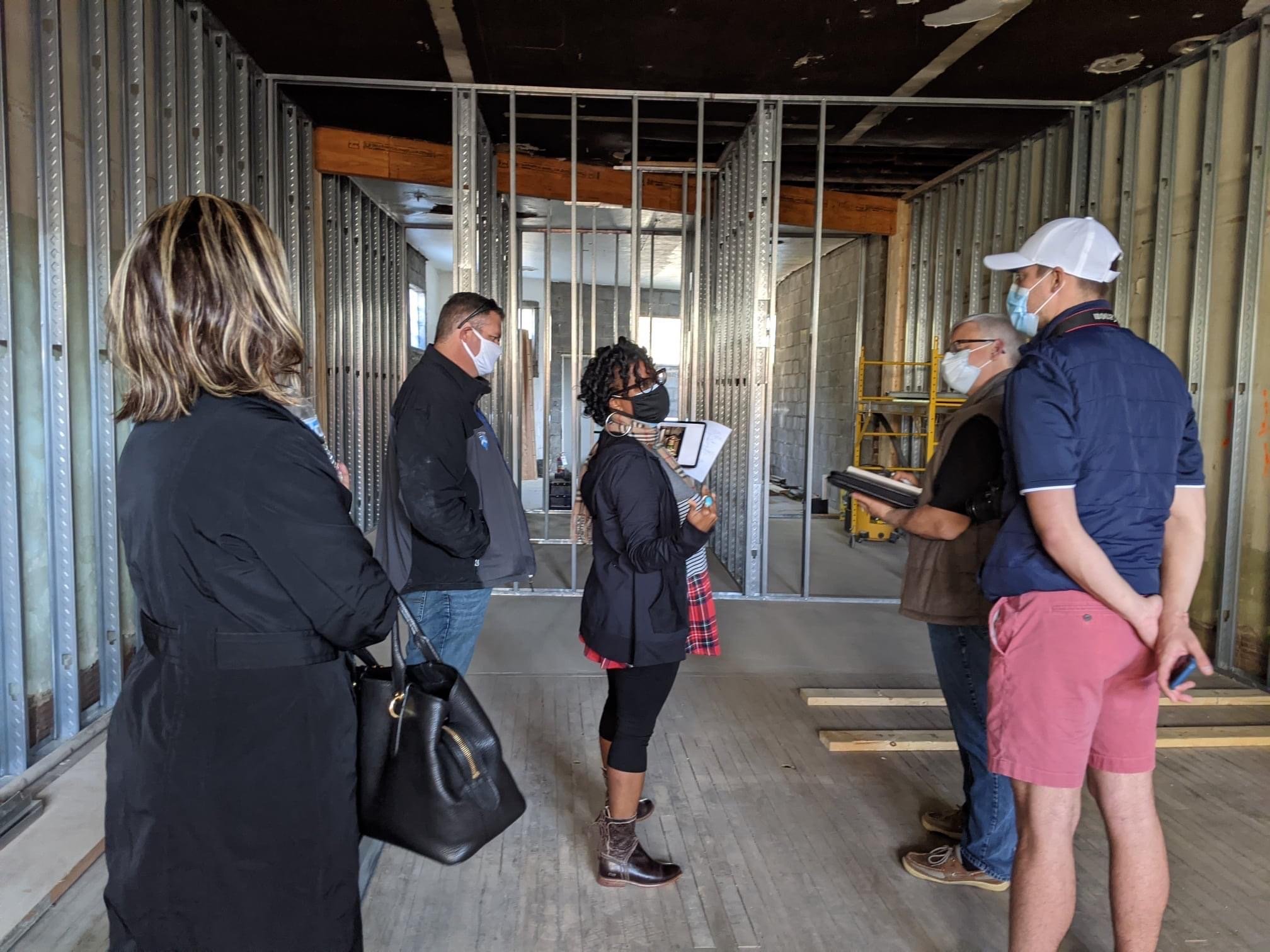Kenmore Neighborhood Alliance
Residents and visitors enjoy food trucks, music, and shopping during Kenmore Neighborhood Alliance’s First Friday events.
In Kenmore and Summit Lake, organizations like Kenmore Neighborhood Alliance and Let’s Grow Akron empower residents and entrepreneurs to contribute to the economic development in their own neighborhoods. The guidance and opportunities provided by these organizations have allowed these neighborhoods to attract more customers as well as entrepreneurs.
Fostering revitalization, economic development through civic programs
Like a ripple on water, the transformation of Akron’s Kenmore Boulevard has been far-reaching, pervasive and unstoppable.
An artsy and eclectic destination for shopping, recreation, entertainment and music—this historic district hosts an array of community-wide events, festivals and concerts. Revival through reimagination has been made possible through the efforts of local advocates, entrepreneurs, policymakers and residents.
Kenmore Neighborhood Alliance has worked to transform Kenmore Boulevard into a destination for shopping, recreation, and entertainment. Located on the east side of Summit Lake, residents can visit the various, diverse storefronts or enjoy events like swing dancing, street festivals, or concerts from touring and local musicians.
As a fifth-generation resident of the area, Tina Boyes is uniquely perched to helm the Kenmore Neighborhood Alliance.
“As I watched what I once knew as Kenmore begin to fade—sometimes slowly, other times quickly—I wanted to bring what experience and connections I'd gained in the nonprofit funding world back into the neighborhood where I grew up,” says Tina, who is the organization’s first executive director.
Founded in 2016, the Alliance’s goal is to foster cultural, artistic, recreational and business revitalization in the charming and colorful district.
“In the beginning, we were just a handful of residents who wanted to make Kenmore better,” says Tina. “Since then, we have added a board and committee structure that bring strength and connections to the broader Akron ecosystem, including Akron Civic Commons.”
Music is an inseparable part of the zeitgeist
Within a scant stretch of three blocks along Kenmore Boulevard, there are six recording studios, two guitar shops and a regional live music venue, all surrounded by a community full of working musicians with studios and practice spaces in their basements. One business, Lay's Guitar Shop, has been in the neighborhood for almost 60 years and has done work for everyone from Joe Walsh and Jimmy Page to Dan Auerbach of the Black Keys.
It’s only fitting that one of the neighborhood’s mechanisms for engaging, energizing and attracting people and entrepreneurs back to its public spaces are events called Kenmore First Fridays, which began five years ago.
According to Tina, “We leverage our history and bring it out onto the sidewalks with live music, food trucks and kids’ activities, so our community can celebrate it and visitors can appreciate us in a new light.”
Visitors from the Akron Civic Commons Learning Journey explore and buy products at Let’s Grow Akron’s Community Farm Market & Kitchen. Visitors from Akron Civic Commons learn about Let’s Grow Akron’s community gardens and the significance of urban agriculture from Let’s Grow Akron director, Lisa Nunn.
While it's the music that brings them in, the events also offer pop-up opportunities for local makers, craftspeople and entrepreneurs to sell their goods. These events familiarize residents and visitors with entrepreneurs who, as support for them grows, may begin thinking about a permanent space, creating a bullpen of small businesses to fill vacant storefronts.
“The formula is working. One of our longtime First Friday patrons, Lori Julien, owner of Marigold Sol, saw a vacancy in a building she'd admired over the years and contacted us about putting her business there,” says Tina.
Lori and her husband are long-time participants of First Fridays and the Better Block events that reimagined what the neighborhood could become. In a metaphoric sense, her shop of vintage gift items, repurposed furniture and home décor, is the perfect fit for Kenmore, where everything that is old can be refashioned into a modern aesthetic.
“I’m in love with old buildings, with their hardwood floors and high ceilings, and also enjoy the sense of being located on a walkable part of a main street,” says Lori. “I always envisioned myself being part of a vibrant community that celebrates music and art with diverse, locally owned shops.”
Building mutually beneficial relationships
In addition to Kenmore First Fridays, Tina says fruitful collaborations with property owners and the City of Akron have also encouraged growth.
“The events we put on often require use of private spaces to make them successful; for instance, a vacant bar or a courtyard,” she says. “We build relationships that are mutually beneficial. And we get to know each property owner, their motivations and where each is in the property ownership lifecycle. Then, if a musician or Kenmore First Friday vendor is looking for a building on Kenmore Boulevard, we can introduce them to the owner of an appropriate space. It's like a concierge service and the outcome is positive for the business owner, the property owner and the neighborhood as a whole.”
The Alliance also counts on collaborating with the City of Akron to create a safer, cleaner and more appealing boulevard as a means of attracting economic activity. This translates to ample nighttime lighting, signage, extended sidewalks, bike lanes and pedestrian access. The city's Great Streets program is critical to making that happen.
Through its Rubber City Match program, the city has also introduced budding entrepreneurs to Kenmore’s wide-ranging commercial spaces. One of the recipients of the 2020 Rubber City Match grants is Monaqui Porter Young, owner of Srina Tea House & Café. After 20 years living in New York City, she brings a global perspective back to her hometown with her first brick-and-mortar shop.
“While I was working for the United Nations, I was invited to speak in Sri Lanka,” she says. “I spent time with so many incredible farmers and learned how they transform natural resources into organic tea that’s healthful for people. After selling these teas online for many years, I decided a physical presence would open the doors to educating people about integrative health and holistic foods.”
She adds they are hosting Senior Wellness Care classes to engage people in learning more about nutrition, and also sponsoring music and arts events.
“We are hitting the reset button on Kenmore, and Akron as well,” says Monaqui. “Through public and private partnerships, we are able to effect change in a community that has been underserved.”
Gravitating back to neighborhoods
In the midst of the pandemic, when many businesses were shuttering, Kenmore Boulevard actually filled 12 storefronts.
“This is incredible to me,” says Tina. “But when you think about it, it makes sense: People are naturally gravitating back to neighborhoods. They're also rethinking what's important to them. By slowly creating spaces where entrepreneurs can flourish, and by giving them the opportunity to test the waters and build a following, we're setting them up for success. We simply celebrate what's good about the neighborhood, invite more people in and walk with them as they navigate their success.”
She credits much of their progress to “employing the Civic Commons way of engaging with our spaces: first, move light and fast. Then, learn from the experience, and build consensus for bigger and more lasting improvements. And it's working in Kenmore.”
Lori Julien, owner of Marigold Sol, shows off her retail space on Kenmore Boulevard. Monaqui Porter Young takes the first steps to developing the storefront for Srina on Kenmore Boulevard.
Let’s Grow Akron helps give the Summit Lake Neighborhood knowledge and skills to create sustainable sources of food in addition to opportunities for entrepreneurship in the form of the Summit Lake Farmer’s Markets and Community Farm Market & Kitchen
Let’s Grow Akron’s contribution to Akron’s infrastructure started in the garden in 1988. What started as a community garden in the Summit Lake neighborhood has grown to include classes, a farmers’ market, and recently, the Community Farm Market & Kitchen.
Lisa Nunn, director of Let’s Grow Akron, has been with the organization for 10 years. When she became a part of the organization, she says “We were a community garden organization. We did have a children’s program and we did have more informal canning classes and some garden talks, but over the last 10 years, we’ve really formalized the programs and classes.”
As interest in community gardens grew and the need to create a sustainable food source in the Summit Lake neighborhood was acknowledged, partnerships with other organizations, such as Summit Metro Parks and the Summit Lake Community Center, helped facilitate the creation of the Summit Lake Farmer’s Market, where they have seen a steady increase in attendance, revenue, and vendors over the years.
Although the Summit Lake Farmer’s Market is growing, Lisa explains that it is a smaller farmer’s market by design so that Summit Lake residents have opportunities for entrepreneurship and affordable, fresh food.
“We want it to be affordable. One of the things that we’ve learned is farmers who need to pay their mortgage aren’t necessarily going to attend a smaller farmers market like ours… But because we are a nonprofit and even though we are generating some revenue from what we sell, our goal is more creating access and also creating a space for small scale growers and small scale producers to sell and supplement their income.”
Lisa recalls that one of the vendors at the Summit Lake Farmer’s Market is an immigrant family whose parents are from Laos and Cambodia and have a large market garden in the community. The father also works on a farm. Together, they sell produce grown both on the farm and in their garden at the Summit Lake Farmer’s Market.
“Then we take them to the farmer’s market in North Hill where there’s more of a Southeast Asian population because they grow a lot of the vegetables they’re looking for. So we take them and we transport them and help them set up tents and tables. We supplement them with a little bit of our vegetables and they’re able to make some money. The mom has seven kids and so they’re growing for their family, but they’re also growing in order to supplement their income,” Lisa explains.
The Summit Lake Farmer’s Markets takes place from June to September. Outside of those months, vendors and visitors no longer have to wait for summer to sell and buy healthy food products in this neighborhood thanks to the community canning program and the Community Farm Market & Kitchen.
While Let’s Grow Akron hosted demonstration-style canning classes, some people still weren’t completely comfortable doing it on their own or may not have had the equipment.
“We started community canning, where people can come and bring their own harvest they bought in bulk at the farmer’s market and use our equipment, and we also have a Certified Better Processer on staff so they would be available to answer questions and guide the process to make sure food is being preserved safely so nobody gets sick,” Lisa explains.
Creating products by canning and preserving produce alongside the community led to the creation of the Community Farm Market & Kitchen. Products were being created that could be sold and used year-round. Lisa says it was also a way for Let’s Grow Akron to not only generate revenue, but also to create jobs in the community.
Lisa explains that one of the goals of the Community Farm Market & Kitchen is to offer meaningful employment to people who want to do this type of work. Additionally, Let’s Grow Akron takes a holistic approach at tackling food deserts and creating healthy and sustainable food sources in this community.
“The market allows us to be able to access to fresh fruits and vegetables, whether you are growing your own or shopping at the market or participating in a cooking or canning classes, or even picking up food from the food pantries. We have several gardens that grow for food pantries and community meals. We participate in a local food delivery program so that’s a program where families can sign up to have produce delivered to them. So the goal is for people to access fresh, healthy, locally grown food regardless of their life situation.”

